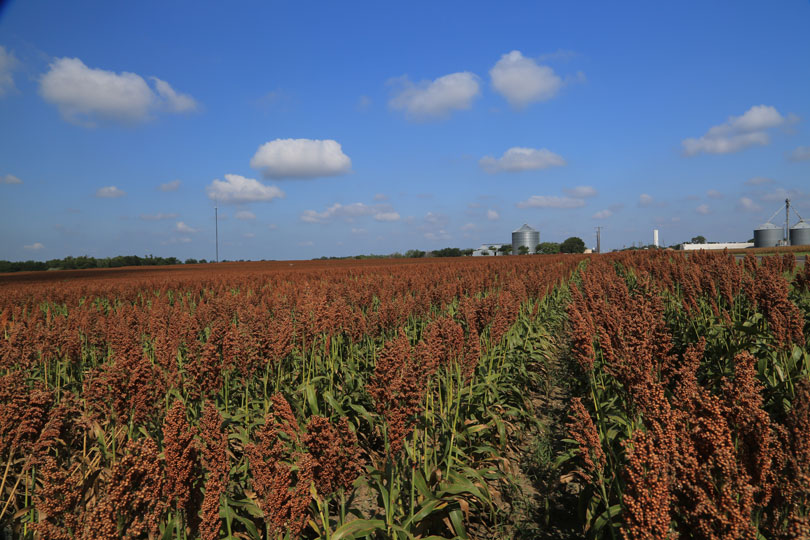By Jennifer Dorsett
Field Editor
Since China announced steep import duties on sorghum in mid-April, ethanol companies located in Texas and other states have been busy buying up the grain at discount prices.
China’s decision hurt Texas sorghum farmers, Texas Farm Bureau Associate Director of Commodity and Regulatory Activities Brant Wilbourn said.
Claiming the action as an anti-dumping measure, China said beginning April 18, it would impose a 178.6 percent tariff on U.S. sorghum. The country implemented the tariff after a two-month anti-dumping investigation allegedly found shipments of sorghum have been unfairly subsidized by the U.S., hurting Chinese sorghum farmers.
National Sorghum Producers said the organization was “deeply disappointed” in the findings.
“U.S. sorghum is not being dumped in China, and U.S. sorghum producers and exporters have not caused any injury to China’s sorghum industry,” the organization said in a statement released after China’s announcement. “National Sorghum Producers, alongside our producers, stakeholders and partners, has cooperated fully with China’s antidumping and countervailing duty investigations, including submitting several thousand pages of data demonstrating conclusively that U.S. sorghum is neither dumped nor causing any injury to China.”
The U.S. is the world’s largest sorghum grower, producing 480 million bushels in 2016. Texas sorghum farmers plant more than 1.5 million acres annually, making it the second-largest sorghum producing state behind Kansas. China has been the largest importer of U.S. sorghum since 2014 and the U.S.-Chinese sorghum trade is worth nearly $1 billion annually.
Sorghum prices dropped sharply after the Chinese announcement, leaving ships full of sorghum destined for China to change destinations and seek alternate buyers. Sellers were also searching for new buyers for shipments still headed to the coast.
Successful Farming reported Conestoga Energy Partners, LLC bought trains full of sorghum initially destined for export terminals on the Texas coast. Conestoga then switched one ethanol plant in the state of Texas from using corn to sorghum.
“We instantly purchased about 9 to 10 million bushels of sorghum that was previously unavailable, that was canceled (to China),” Jason Dale, a grain buyer for the company, said.
The U.S. Department of Agriculture said in 2017 ethanol manufacturers used 5.5 billion bushels of corn, but only 100 million bushels of sorghum. With the largest export market out of reach, domestic sorghum use for ethanol production may soar this year.
Last week, sorghum was trading domestically for $3.37 per bushel and corn was at $3.67 per bushel. Before China launched their investigation, the two commodities were trading at nearly the same level.
“Hopefully, we can get this trade dispute with China resolved and relieve some of the pressure on our sorghum farmers,” Wilbourn said. “But in the meantime, there’s demand for sorghum domestically and the U.S. Grains Council is working to open up new markets for the displaced sorghum.”
Ethanol manufacturers and grain buyers said they have purchased enough sorghum to operate biofuel plants through July.

